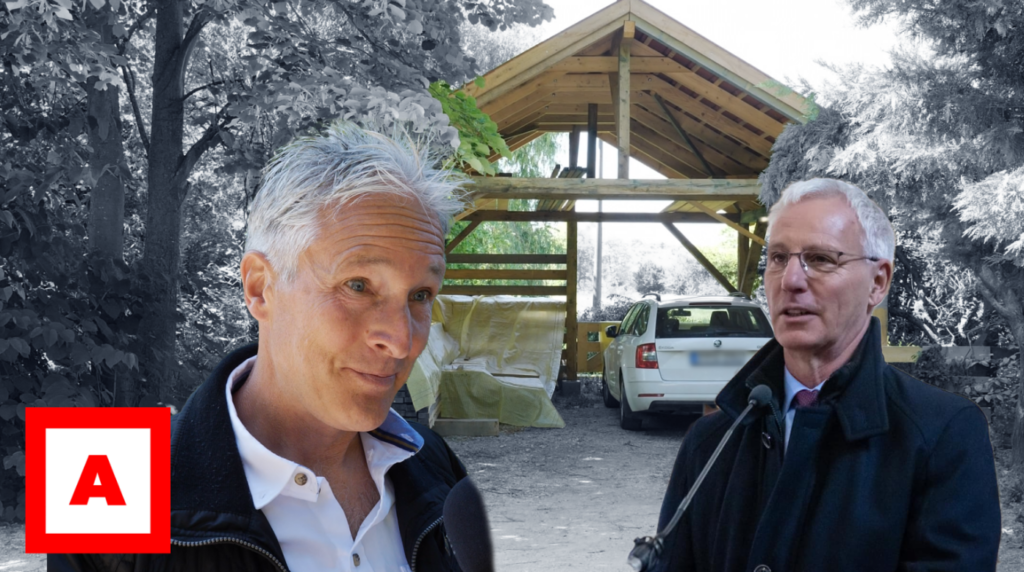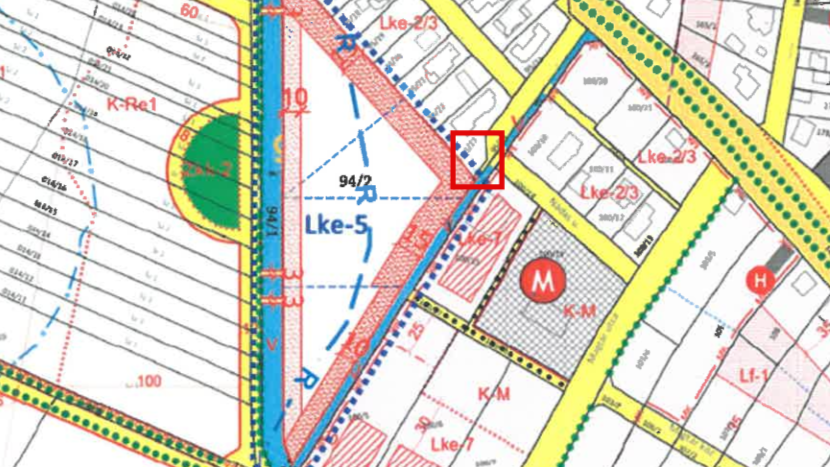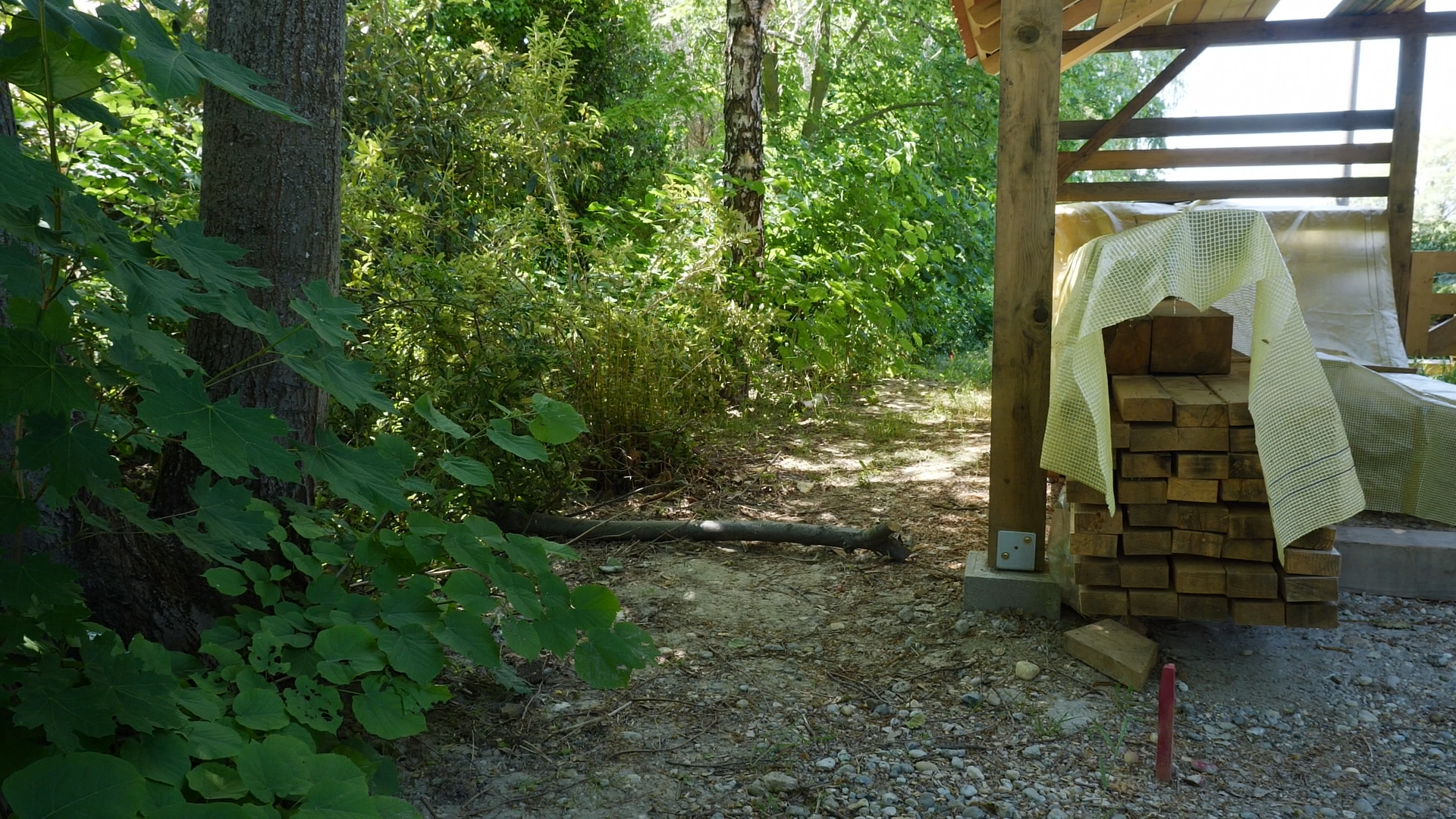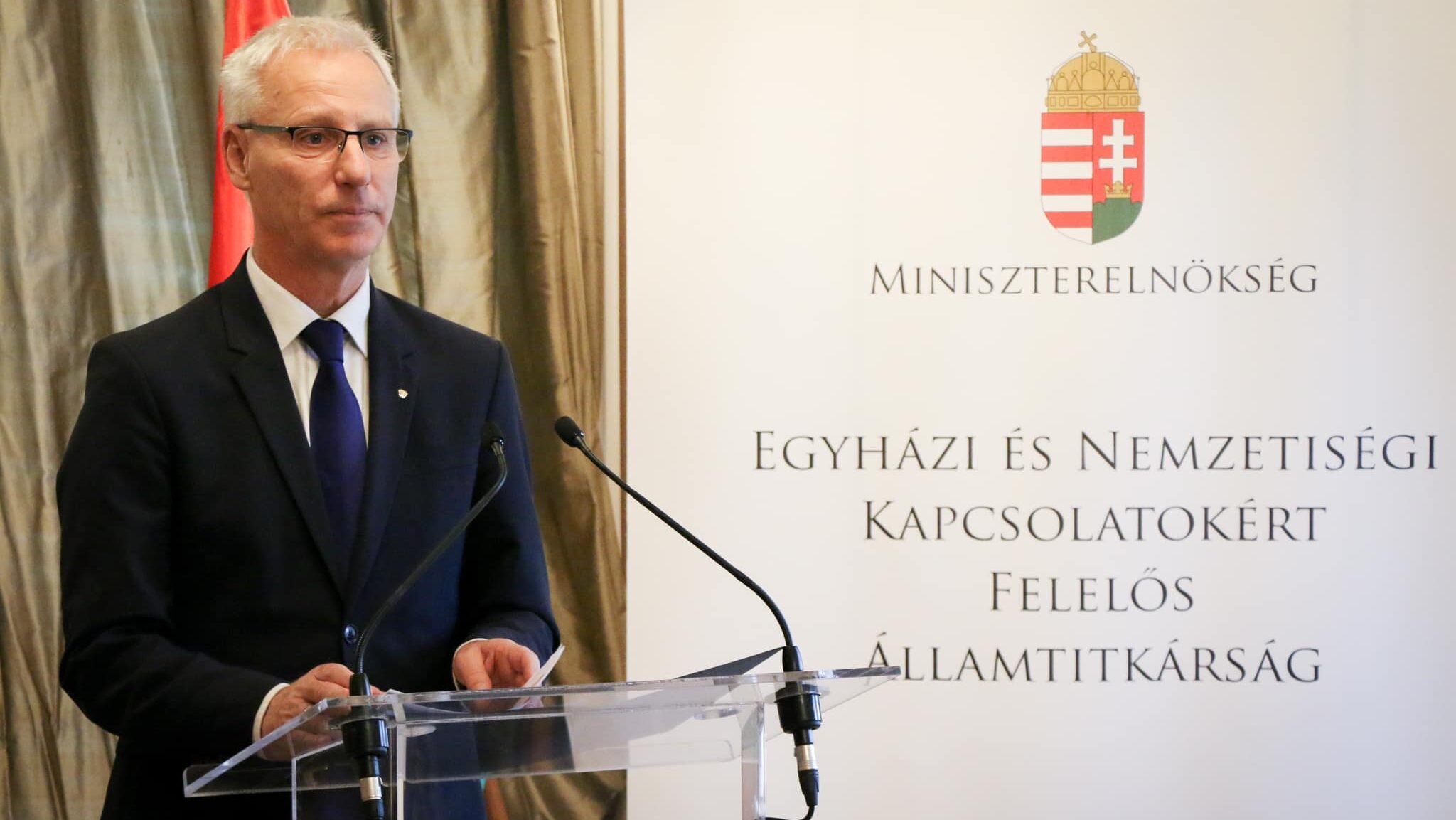The https://english.atlatszo.hu use cookies to track and profile customers such as action tags and pixel tracking on our website to assist our marketing. On our website we use technical, analytical, marketing and preference cookies. These are necessary for our site to work properly and to give us inforamation about how our site is used. See Cookies Policy
Carport crisis: Secretary of State for Church Affairs blocks neighbour’s access to property with new construction
All roads lead to Miklós Soltész’ carport. This is particularly unfortunate for those who do not want to go to Miklós Soltész’ carport – as nice as a carport it is – because they’d rather go to their own homes, instead.
Miklós Soltész leads a happy life as the Secretary of State for Church and National Minority Relations at the Prime Minister’s Office and as Vice President of the KDNP. He resides in the small village of Budajenő in Pest County, where he bought a stretch of the public road outside his house a few years ago off the local government. Access to the property behind the Soltész house has become increasingly limited because a concrete ditch and a newly built carport, both constructed by Soltész, almost entirely block off the area: the new carport especially encroaches on the remaining public road.

A few weeks ago, the mayor ordered Soltész to demolish the structure, but the Secretary of State appealed the decision, so the matter will soon be brought before the municipal council.
We visited the village on a sunny mid-May morning to see the carport, built partially on the public road. We saw that the property behind – owned by resident Gábor Ráth – was almost entirely blocked off.
One road section for take-away, please
Miklós Soltész’s property is located in a secluded area at the end of one of the village’s outer streets, but it seems the Secretary of State needed more privacy. In 2014, he requested to purchase a part of the public road next to his house, which the local government approved. As a result of this decision, in 2020, a 91-square-meter section of the street was annexed to the Soltész family’s property. He paid HUF 1,650 per square meter, which totalled to an approximate HUF 150K.
The purchase saw the nine-meter-wide road decrease to three meters in width. But the ambitious man was not satisfied – he wanted the leftover three meters, too. The municipal council unanimously rejected the request “due to the lack of legal conditions”.
The road, they explained, was a public road that could not be sold – it would first need to be reclassified, which would require an amendment to the local building regulations. More crucially, selling the remaining 3 meters would cut off the public road access to the property behind the Secretary of State’s house, which would render that area valueless and would leave the owner with grounds to sue the local government for damages.
A road in name, a ditch in reality
Gábor Ráth and his family purchased the 1.5-hectare plot of land behind the Secretary of State’s house – and the other houses on the street – in 2019. He plans to build here with his family and friends, intending to divide the property into four separate plots. According to the plans approved by the local government, three of these plots can be accessed by car from the back, but the fourth plot can only be accessed by road from the front, via the section of the street next to Miklós Soltész’s house.
In theory – everything always works in theory – the remaining section of the public road is three meters wide. The unfortunate reality, however, is that the three-meter road has become more of a deep concrete ditch with large trees along the side. Even more constraining is the large carport recently built by Soltész, which encroaches on the public road to reduce the left-over width by yet another 60 to 70 centimetres in some areas.
This was demonstrated by the land survey report commissioned by Ráth, which showed that Soltész’s carport clearly extends onto the remaining public road.
We also found that the three-meter-wide public road is barely passable on foot, much less by car. Perchance a bicycle.
Despite having the necessary permits, Gábor Ráth has not been able to bring water and sewage to his property because the Secretary of State’s carport overhangs the road leading to his plot. He cannot begin construction on his house until the issue is resolved, as the property cannot be accessed from the public road. Ráth is frustrated and is seeking legal recourse, believing that it was improper for the municipality to sell most of the public road to the Secretary of State in the first place.
The legal expert from Átlátszó agrees with the complainant, citing Section 5 of the 2011 Act CXCVI on National Assets, which states that local public roads and their structures are the exclusive property of the local government. According to the Supreme Court’s precedent-setting decision Pfv.21123/2016/6, any contract in which the municipality sells public roads, part of the national assets, is void due to a violation of the law.
The Secretary of State claims all is cool
We sent our questions about the matter to Secretary of State Miklós Soltész. In his reply, the KDNP politician explained that the 91-square-meter area of road added to their property “was previously an untended, weed-infested strip of the settlement, which we maintained and planted with vegetation for more than 20 years,” and they purchased it from the municipality “at a price determined and accepted by the municipality.”
In response to our inquiry, the Secretary of State also stated that they planned to purchase the remaining section of the road next to their house from the municipality because they deemed it had become functionally obsolete. The area in question was previously designated as a future sidewalk on an earlier land use map.
However, for reasons unknown to them, certain property adjustments were made that eliminated the possibility of constructing the sidewalk that was meant to connect two streets. They acknowledged the rejection of their purchase request and thus considered any further questions on the matter irrelevant.
Regarding the carport overhanging the public road, Miklós Soltész said it was built on their own property with the municipality’s visual approval. He mentioned that they are currently in a legal dispute with the municipality about the structure. They will proceed according to the final decision once the dispute is resolved.
Mayor orders demolition
In response to our inquiry, the village mayor provided detailed information about the legal dispute. István Budai explained that, according to the local building regulations (HÉSZ), the Secretary of State should have obtained permission (municipal design approval) before constructing the carport, which he failed to do. Additionally, the HÉSZ stipulates that a five-meter strip inside the property boundary must be left free, meaning the structure could only be built beyond this strip, deeper within the property. Soltész also failed to comply with this regulation.
István Budai learned about the Secretary of State’s carport only after it was completed. At that time, he was not aware that it overhung the public road. Therefore, despite the carport not meeting the HÉSZ requirements, he approved the retroactive application submitted by the politician. The mayor justified this by stating that the structure was not in a central area, did not detract from the town’s appearance, and he had already had several conflicts with Miklós Soltész and did not want another.
After the permit was granted, a land survey revealed that the politician’s structure not only failed to comply with the HÉSZ but also encroached on the public road. Consequently, the mayor retracted his previous decision and ordered the Secretary of State to demolish the illegally constructed carport and relocate it within his own property in compliance with local building regulations, specifically leaving the five-meter strip from the property boundary free.
The problem, of course, is that relocating the carport would mean demolishing and rebuilding it entirely. Secretary of State Miklós Soltész is likely trying to avoid the additional work involved, as he has appealed the mayor’s decision to “relocate” the carport.
Following the appeal, the question of the Secretary of State’s carport will soon be brought before the municipal council. The mayor expects the decision to be upheld – no part of a structure can legally encroach on a public road. When asked if he or the council feared any retaliation for opposing a Secretary of State, the mayor responded: “This is not the first time.” He added that it is his duty “to follow the rules”, and he is not afraid – he is in the right.
Translated by Vanda Mayer. The original, Hungarian version of this story was written by Katalin Erdélyi and can be found here. Video by Bence Bodoky.




